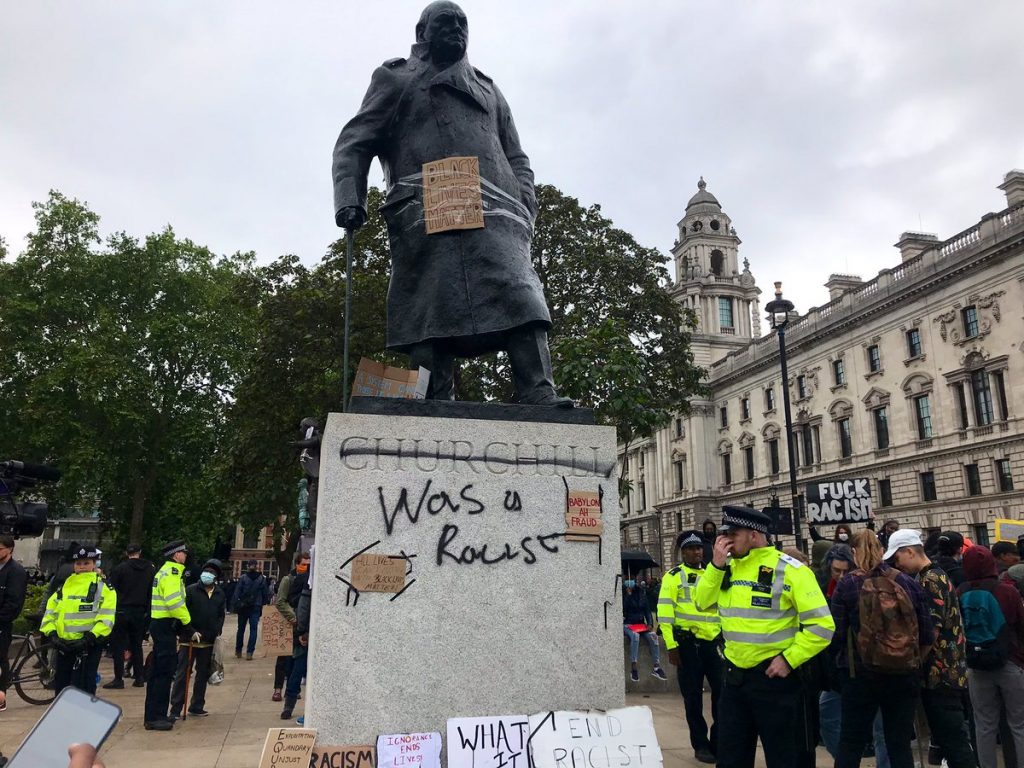Under Gavin Williamson’s tenure, the Department for Education (DfE) was tasked with curbing the devastating effects of the pandemic on the education of young people. Instead of listening to teachers’ requests for adequate funding and resource provision, Williamson plunged schools into an exam fiasco[1] and attempted to implement a mobile phone ban in schools, as if students weren’t already feeling miserable enough. Needless to say, he didn’t survive Boris Johnson’s September reshuffle.
Since then, the DfE has been run by Nadhim Zahawi, a man who consistently voted for academisation of schools, increased tuition fees, and an end to financial support for 16-19 year olds in training and further education[2] – thus significantly limiting access to education for a number of young people. Now, under his direction, the DfE has issued new guidance on political impartiality, which will limit the content of our teaching to an alarming degree.
This doesn’t come as a surprise to many teachers. The guidance[3] merely reinforces already-existing guidance by examining contemporary political scenarios that could lead teachers into partisan territories. For example, ‘Scenario F’ imagines how one should teach about “significant political figures, including those who have controversial and contested legacies.”
Let’s take Winston Churchill then. He is indeed a “significant political figure” and absolutely one we should be talking about in schools – I’m sure many teachers would agree that having a knowledge of past prime ministers is uncontroversial, especially those around in times of great social change. But which Churchill are we permitted to talk about in schools – the murderous racist[4] or the heroic leader? According to the guidance, which claims to be written for the sake of clarity, teachers should “focus on teaching about what these figures are most renowned for”… Churchill as heroic leader it is. Regardless of political persuasion, this simplification is far too reductive to be beneficial to learning.
Admittedly, topics as extreme as those plaguing Churchill’s reputation might not be appropriate for younger pupils. Moreover, I doubt any teacher would choose to waste time navigating the countless atrocities of past politicians. As a primary teacher, I know there are far more important things to be done. Then again, even primary schools, quite rightly, have to cover some extremely difficult topics, such as the horrors of Nazi Germany and the Holocaust. Yet this topic is in its nature partisan political – to treat it otherwise would surely be a dangerous sort of misinformation.
According to the guidance, “partisan political views must not be promoted to pupils”. So do teachers have the right to encourage their pupils to resist right-wing Nazi organisations? Surely teachers must be able to explain why you shouldn’t join political parties associated with Nazism. This requires explicitly promoting against a political position, which I know from experience is the expectation of young people. When teaching about Holocaust Memorial Day, my pupils (who were hearing about this for the first time) naturally asked very political questions – do Nazis still exist today? Why did they do what they did? Did Britain stop the Nazis? Such questions cannot be answered without also explaining how Nazism, as a partisan political view, should be opposed.
Children deserve better dialogue about such topics, which is evidently limited by the guidance. Sadly the many questions this new guidance raises, as Dr Mary Bousted of the NEU has said, “does not so much clarify existing guidance as add new layers of mystification”[5]. For example, is it self-explanatory that we should know what political figures are “most renowned for”? Who are these “significant political figures”, and significant to whom?
The reality is that the government is using yet another distraction technique, to shift people’s attentions away from the real crises of education – not to mention those of the whole government – to the so-called culture wars, with the fundamental aim to depoliticise education. After all, if education is no longer political, then children will be less equipped to challenge corrupt politics when they see it.
This happened before in 2020, when the government issued guidance that branded anti-capitalism views as politically extreme. Specifically, it proposed that schools should not use resources from those with “a publicly stated desire to abolish or overthrow… capitalism”[6], which led some teachers wondering if they were still allowed to teach about Martin Luther King Jr. and Rosa Parks, both outspoken anti-capitalists.
The new guidance is not just a problem for those in the sphere of education, whether teacher or learner. It is a problem for all those who care about humanity developing to its fullest potential. To end on an explicitly communist note, the young Marx described the essential connection between knowledge of the world and the capacity for human morality[7]. We can only develop as humans to the fullest extent if we are able to learn about our world in its entirety. Thus, if schools are forced to limit certain topics, certain areas of our world, we deny young people the chance to develop to the best of their abilities.
Lenin explains this succinctly – “the ‘success’ of human practice proves the correspondence between our ideas and the objective nature of the things we perceive”[8].
As Communists, we should be greatly dissatisfied with a form of education that obfuscates any aspect of our world – without observing the world as it is, we cannot hope to know it. And without a clear knowledge of the world, in all its complexity, how can we hope to change it for the better? A successful education prioritises deeper understanding as the basis of human development and the enrichment of life. The DfE’s smoke and mirrors guidance is therefore a danger to us all.
Efrem Craig, is a member of the YCL’s London branch
References
[1] https://www.bbc.co.uk/news/uk-53815089
[2] https://www.theyworkforyou.com/mp/24822/nadhim_zahawi/stratford-on-avon/votes#education
[3] https://www.gov.uk/government/publications/political-impartiality-in-schools/political-impartiality-in-schools
[4] https://morningstaronline.co.uk/article/truth-about-winston-churchill; https://www.bbc.co.uk/news/magazine-29701767
[5] https://neu.org.uk/press-releases/political-impartiality-schools
[6] https://www.theguardian.com/education/2020/sep/27/uk-schools-told-not-to-use-anti-capitalist-material-in-teaching
[7] Marx, ‘Hegel and Feuerbach’ in Writings of the Young Marx p.394
[8] Lenin, Materialism and Empirio-Criticism p.157



